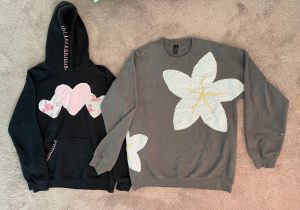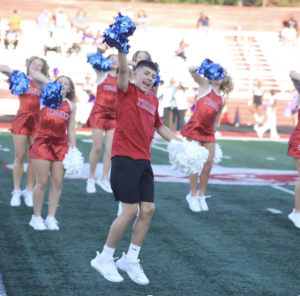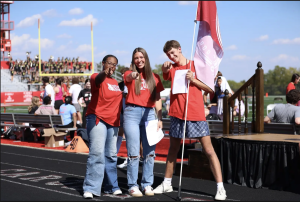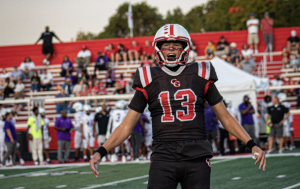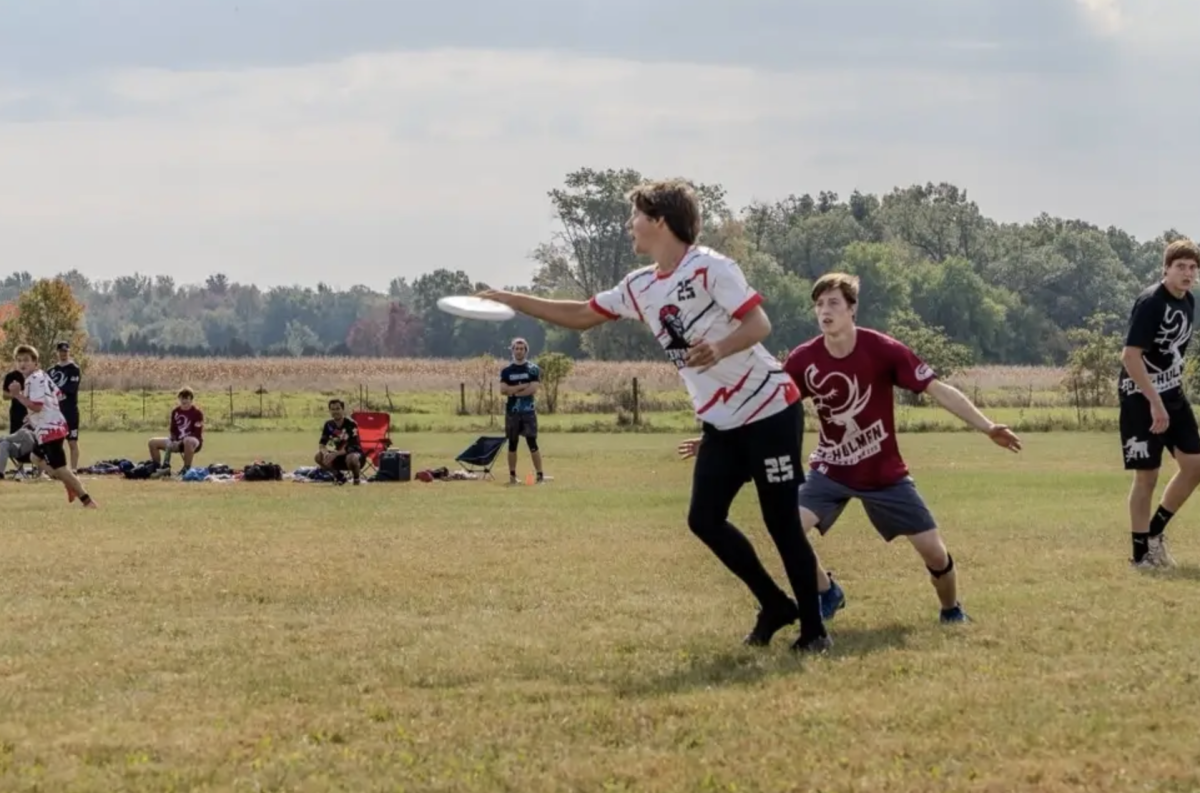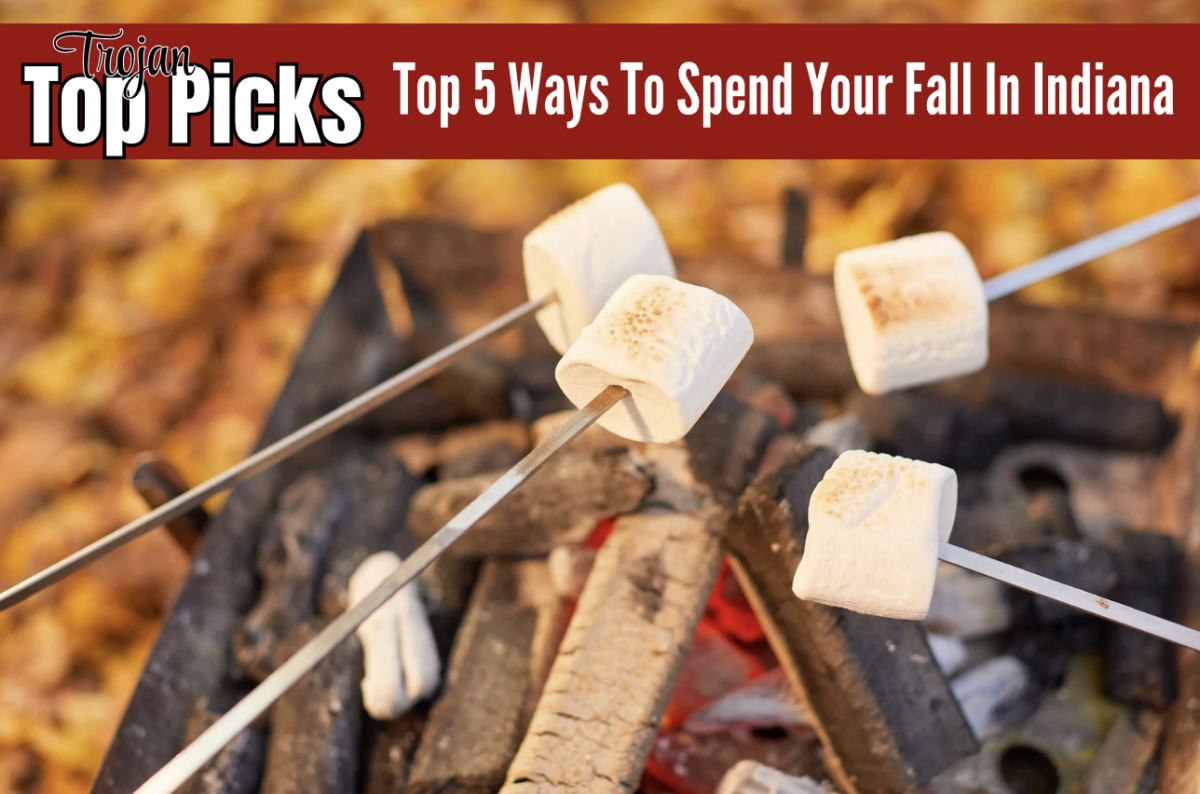Students celebrate lesser known traditions and religions during the holidays
December 19, 2019
As Christmas approaches, some students are decorating trees or hanging mistletoe. However, there are many students who celebrate the holidays with loved ones in different ways.
Sam Petty
Senior Sam Petty does celebrate Christmas. However, Petty also commemorates and celebrates Hanukkah by lighting a menorah.
“The story of Hanukkah is when the Jews won back Jerusalem from the Greeks they cleansed the temple and relight the sacred flame. So, we celebrate with the menorah the way we do,” Petty said.
Petty’s mother grew up practicing Orthodox Judaism, and although she converted to Christianity when she was 18, Petty’s family still observes Hanukkah for its ancestral meaning and its story.
“I celebrate Hanukkah more for the holiday and the tradition rather than for the religion,” Petty said. “It is not really a religious practice in [that] sense. It is a familial-history type holiday [for me].”
The story of Hanukkah and the familial meaning, are the reasons why Petty wants to continue celebrating in the future.
“I plan on celebrating Hanukkah because the story is rather interesting, and I feel it is something that future generations should recognize,” Petty said. “We should remember and respect our ancestors because they are the reason we have the holidays and the traditions that we do.”
Nadja Hadzialagic
Instead of Christmas, junior and Swiss foreign exchange student Nadja Hadzialagic celebrates two holiday events each year named Eid, which means a “festival” or “feast” in Arabic. The two major eids are Eid al-Fitr and Eid al-Adha, both of which follow the Islamic calendar and change dates each year.
“I do not celebrate Christmas in my family because we are Muslim. My family is from Bosnia, and they moved to Switzerland, where I live now. Though they moved, they kept the tradition because my grandparents are pretty religious,” Hadzialagic said.
Hadzialagic’s fondest memories of Eid also revolve around her family.
“I like that I get to see all of my family together rather than just my cousins, aunts, and uncles separately,” Hadzialagic said, “The holiday does not feel really special, but I get to see people that I do not usually see. We get to talk, so everyone knows what is going on in everyone’s lives.”
Throughout Hadzialagic’s life, no matter the location, she has always celebrated Eid with her family.
“We do not do a lot of traditions, but we give each other gifts and spend time together,” Hadzialagic said. “We just come together as a family and have dinner. Every year is like a family reunion.”
Hailey Kassoumis
Senior Hailey Kassoumis celebrates Yule instead of the classic Christmas.
Yule is celebrated in Nordic countries and Estonia, often by those following Paganism. The holiday emphasizes pre-Christian winter festivals and traditions.
“To celebrate Yule, you use specific herbs that are associated with yule, like nutmeg and cinnamon. You also use specific crystals that are good for the holiday season. Usually, ceremonies are held to cast good luck spells,” Kassoumis said.
Paganism and the traditions the religion holds in modern media are related to negative stereotypes. Kassoumis looks down on these labels put upon her religion.
“People think it’s Satanism and that it’s against religion in general, but Paganism is one of the oldest religions in the world and it celebrates God’s older than the Christian God. I’m a Nordic Pagan, so I worship gods like Loki and Thor.”
For Kassoumis, celebrating Yule came as naturally to her as it did in finding her religion.
“Because I am Pagan, I feel obligated to celebrate Yule,” Kassoumis said. “Paganism is a religion focusing upon one’s spirituality and the nature around them. I did not really choose to be Pagan, it’s just a belief that followed me and that I found. I felt like I fit more with celebrating Yule than Christmas.”
Ana Gomez Alcaraz
Junior foreign exchange student Ana Gomez Alcraz celebrates Three Kings’ Day, a Catholic holiday that is recognized in Spain.
“In my country, Spain, we are mostly catholic,” Gomez said, “The three wisemen are a catholic version of celebrating Santa Claus.”
Similar to Santa Claus, the three wisemen bring gifts to every house during the night. The only difference is that the dates are not the same.
“On the night of the 5th of January, the three wisemen come to your house on camels and they bring you presents. On the morning of the 6th, you open your presents,” Gomez said.
The Three Kings’ Day celebrations also have their differences when compared to Christmas. Usually, people celebrate Three Kings’ Day by leaving their shoes at the door of their house so, similar to Santa Claus, the three wisemen can come and leave presents inside of them.
“In my case, I get presents in my house and in my grandma’s house, and we eat candy while we open the presents. Every single family has their own thing, but my family waits open them until the whole entire family gathers,” Gomez said.
With the holiday rooted in religion and familial ties, Gomez’s fondest memories of it revolve around this time.
“My favorite memory is when we all gather together in my grandmother’s house right before opening presents,” Gomez said. “We drink hot chocolate and it makes me feel so happy, because I am spending time with my family. I usually see my family, but at that time it feels different and special.”
Joon Eom
Senior Joon Eom, a foreign exchange student from South Korea, recognizes Christmas, but does not celebrate it.
“Christmas is not a really big holiday in Korea, it is just like any other day,” Eom said, “School is off and work is off. Everyone just takes a rest and hangs out with friends and family.”
South Korea treats Christmas as a public holiday because Christians make up about 25-30% of the population, while the other 70% of people in South Korea are Buddhist don’t have a religion.
“It’s mostly the churches that celebrate: They dance, sing, or decorate. Some people decorate their house. My family used to do it, but we do not anymore,” Eom said.
Eom remembers one of his favorite memories in Korea around the Christmas holiday.
“I liked hanging out with friends and not going to school. We would look at all of the [seasonal] decorations” Eom said.
Though Christmas is a popular holiday in the U.S., there are students in the community who celebrate the season in different ways. They cultivate distinctive traditions, beliefs, and memories through these holidays.


